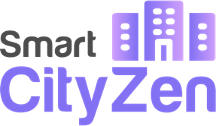As enterprises accelerate their digital transformation, AI-powered automation has become a top priority for CTOs, VPs of Technology, and senior decision-makers. Claude 3.7, the latest iteration from Anthropic, is emerging as a formidable player in the AI landscape, particularly for companies seeking efficiency in software development and automation. But how does it compare to other leading models, and what makes it a superior choice for code automation?
In this blog, we break down the strengths of Claude 3.7, compare it with other AI models, and explore its impact on enterprise coding workflows.
What is Claude 3.7?
Claude 3.7 is the latest AI model developed by Anthropic, designed with a strong emphasis on ethical AI, efficiency, and enhanced reasoning capabilities. This model is built upon the foundation of previous Claude iterations but offers significant improvements in contextual understanding, response accuracy, and adaptability to enterprise needs. Unlike traditional AI models, Claude 3.7 is optimized for structured tasks, including software development, code review, and automation workflows. With its ability to process complex programming languages and large-scale development projects, it serves as an intelligent assistant for developers, reducing manual coding efforts while maintaining high standards of quality and security.
How Does Claude 3.7 Compare to Other AI Models?
Claude 3.7 distinguishes itself through a combination of enhanced reasoning capabilities, lower latency, and a stronger focus on ethical AI development. Below is a comparative analysis of Claude 3.7, OpenAI’s GPT-4, and Google’s Gemini 1.5:
|
Feature
|
Claude 3.7
|
GPT-4
|
Gemini 1.5
|
|
Code Generation & Debugging
|
Highly structured, fewer hallucinations, strong contextual memory
|
Versatile but may produce inconsistent outputs
|
Focuses on multimodal learning but less optimized for structured code generation
|
|
Performance
|
Faster response times with optimized compute efficiency
|
High accuracy but slower response times in complex tasks
|
Advanced multimodal capabilities but computationally expensive
|
|
Adaptability to Enterprise Needs
|
Customizable and trained on industry-specific use cases
|
Generalized AI with a strong knowledge base but requires fine-tuning
|
Excellent for creative applications but less focused on structured automation
|
|
Security & Ethical Considerations
|
Designed with safety-first principles and enterprise-grade security
|
Strong but prone to biases due to its broader dataset
|
Privacy-conscious but not as transparent in decision-making processes
|
Why Claude 3.7 is a Game-Changer for Code Automation
1. Enhanced Coding Capabilities
Claude 3.7 has been optimized to generate cleaner, more efficient code, making it a valuable asset for developers and enterprises alike. Its improved context awareness reduces redundant code generation and enhances debugging, ultimately increasing productivity.
2. Facilitating Automated Software Development
For companies looking to integrate AI-driven software development workflows, Claude 3.7 provides:
- Automated Code Reviews: Reducing errors and improving software quality.
- Refactoring Assistance: Optimizing legacy code without disrupting workflows.
- Bug Detection & Fixes: Faster identification and resolution of code defects.
3. Ideal for Enterprises Scaling Automation
Enterprises struggling with software development bottlenecks can use Claude 3.7 to automate repetitive tasks, freeing up developers for high-value problem-solving.
Challenges and Considerations in Adoption
While Claude 3.7 offers significant advantages, organizations should be mindful of:
- Integration Complexity: Requires seamless API connectivity with existing development tools.
- Compliance & Security: Data governance frameworks must be in place when deploying AI-driven automation.
- Human Oversight: While Claude 3.7 minimizes errors, human validation remains essential for critical decision-making.
Future Trends & Strategic Insights
The evolution of AI in coding is shifting towards:
- Hyper-Automation: AI-driven pipelines reduce manual intervention.
- Explainable AI: More transparent models enable better auditing and trust.
- AI-Augmented Development Teams: Blending human expertise with AI efficiency drives productivity.
Our Perspective on Automating Development
As pioneers in the AI-driven transformation space, Equations Work recognizes that Claude 3.7 is more than just an upgrade; it’s a paradigm shift in software development. Our team is committed to bridging the gap between cutting-edge AI and real-world enterprise applications, ensuring seamless automation, predictive error detection, and intelligent coding support.
By embedding AI models like Claude 3.7 into enterprise workflows, we empower businesses to reduce development time, optimize quality, and scale with confidence. But AI adoption isn’t just about technology—it’s about strategy. We provide expert guidance on security frameworks, compliance, and best practices, helping businesses navigate the complexities of AI-driven development with clarity and confidence.
At Equations Work, we are shaping the future of AI-assisted coding. If you’re ready to unlock the full potential of AI for your software development processes, let’s connect. Book a free consultation today and take the next step in AI-powered innovation.









 Click edit to change this text. Lorem ipsum dolor sit amet...
Click edit to change this text. Lorem ipsum dolor sit amet...






